|
10/1/2018 0 Comments Poetry By Zachary Payne  Zachary Payne is poet and translator who works as a Spanish and Applied Linguistics Professor on the island of Oahu. He learned Spanish at the age of 19 and in this new language he regained his lost creativity and Spanish became the language of his poetic voice. He received his Ph.D. from the Complutense University in Madrid, in Spanish and Latin American Thought. Zachary is a member of the Editorial Collective for Caja de Resistencia (cajaderesistencia.cc) a contemporary online poetry journal that specializes in Critical or Dissident poetry. Poetically he has published poetry chapbooks in Spanish in Peru and Spain and has published two full collections of poems in Spanish, the most recent being Robos, Setas & Sombras (Huerga y Fierro, 2014) and was included in the anthology: Disidentes: antología de poetas críticos españoles 1990-2014. (La oveja roja, 2015). Zach continues to write in Spanish but on occasions will write in English. Termites: the illegal occupation of paradise with Prote(s)xt in Hesterglock Press is his first poetry collection written entirely in English. Twitter: @arteenlazanja
0 Comments
10/1/2018 0 Comments The Naif By Alisha Mughal10/1/2018 0 Comments Fiction By Becca Yenser Mike Maguire Flickr CC
Shallow Water A woman was murdered last night on the Bosque, or at least that’s what I heard. I walk down here all the time. There are little birds that fly low in the maze of hollow reeds but these you can’t really see unless you stop and stare for a minute. They are the size of hummingbirds, but brown and dull. If you walk north at a steady pace you will reach the first of two duck ponds, where black ducks with white bills dive and pop up, dive and pop up. American Coots. That’s really what they’re called. The trail doesn’t go all the way around the pond. You can start, but you’ll end up in sinking mud with December mosquitos zombieing after your arms. The trails down here wind and intersect the larger ones, like the human cardiovascular system. I take the veins, where I am alone. Under the troll bridge is the homeless guy, Juan, who pushes a shopping cart of black garbage bags. He fluffs them up for me when I pass and turns to stare at my ass. Ten steps past this you hear the squall of geese from the Bio Park pond. The artificial blue water jam-packed with crashing remote-control boats and ducks fattened with Wonder bread fed by chubby toddler hands. I live here now, since the funeral home fired me on account of my nose piercing. Albuquerque is just a small town disguised as a city. I wake up under its soft shell robin egg sky and get ready for the sun. It’s out to get you, but it’s true I burn easy. To get to the picnic tables I have to walk by the tree where a man was nailed by his hands. There are two black holes the width of pencils about two feet above my head. The bark is stripped there so the inner white bark gleams. I guess Santa Fe is nicer. My friend Abby lives up there and repairs turquoise jewelry in the storefront windows as tourists watch. A modern day zoo of labor. Anyway, a girl was killed and I think I might know her. I pull my hat down and pull my hands back up into the sleeves of my jean jacket. A woman with a German Shepherd jogs past me and gives me a tight nod. I don’t smell good. At the second duck pond I see the maintenance boat out by Goose Island. They keep warming nests in the winter. A highrise for fowl. The Coots sing their scowls. The thick rasps make my ears burn. When I get to the place where I heard they threw her in, I stop. The city has built a cedar platform here, for the vista. The water is muddy brown, eddying in the middle. A father with a nice camera is taking pictures of his sons. Striped sweaters, baby cheeks. They all look, then look away. No one has called the police yet. I can almost see her pale body from here, her hand rising with homemade rings on her fingers. It’s Janey, I am sure of it. She strung her lovers too close together. She ran out of meds last winter and began seeing ghosts in the woods. She talked to trees. We used to sleep in the fort in the woods, holding hands while we laid on our backs and looked through the cracks to find the moon. Juan is suddenly in front of me, barely visible behind his cart of garbage bags. The black plastic is stretched thin, and I can finally see what’s inside: packing peanuts. Bag upon bag of packing peanuts. I guess that would be nice, to sleep high up in a nest of air and foam. To rise above the mud, for a minute at least. Manzanita, 1985 I had this god-aunt named Judy. She told me to marry for money, never for love. I was eight. She promised to show me actual tunnels in trees; when they turned out to be corridors under trees, I cried. She cursed.She smoked a lot and had olive skin that creped like origami. She put the string of a kit in my hands and yelled Run! Her voice a knife you had to check over and over again for sharpness. When you are a child, you ride in the back of the car with the dogs. You get kissed on the mouth by adults. You wear yellow and blue and red at the same time: terry cloth, short-shorts, straps tangled. You put your ear up to a tree to listen. She told me once, before my piano lesson, that this was all a dream. We were in a car; she was smoking. It sent me into a hysterics and so she bought me ice cream. I couldn’t see the world right after that. My parents lost their faces. Someone got poisoned to death on Murder She Wrote. I couldn’t stop checking my fingernails to make sure they weren’t blue. In Kansas, in the winter of my 39th year, the world is encased in glass. My dead dog visits me in dreams, and man-made earthquakes shake me awake. My own cells have begun to turn and divide against me. Judy, maybe you were right. Becca Yenser is the author of TOO HIGH AND TOO BLUE IN NEW MEXICO (Dancing Girl Press, 2018). She teaches at Wichita State University, where she is fiction editor for Mikrokosmos Literary Journal. Her writing appears in Voicemail Poems, Pom Pom Lit, Dostoyevsky Wannabe, The Nervous Breakdown, CHEAP POP, Paper Darts, Metazen, 1001 Editors, Fanzine, Eclectica Magazine, decomP, HOOT, Entropy, Filter Literary Journal, and Toasted Cheese. She likes paying attention. 10/1/2018 1 Comment Poetry By Daniel Edward Moore  Daniel lives in Washington on Whidbey Island. His poems have been found at Spoon River Poetry Review, Rattle, Columbia Journal and others. His poems will soon be found at Hawaii Review, Blue Fifth Review, The Museum Of Americana, West Trade Review, Frontier Poetry Journal, AJI Magazine, Duende Literary Journal, The Inflectionist Review, and Magnolia Review. His books, "This New Breed: Gents, Bad Boys and Barbarians Anthology" and "Confessions of a Pentecostal Buddhist," can be found on Amazon. His work has been nominated for a Pushcart Prize. Visit Daniel at danieledwardmoore.com. 10/1/2018 0 Comments Tilt By Pat Foran bronx. Flickr CC Tilt Can you put me on tilt? my leaning son asks. He can’t help this leaning, even though he’s seat-belted and secure in this wheelchair he’s been sitting in living in declining in the past dozen years. He can’t grip the chair’s controls he can’t control his grip he doesn’t have a grip not anymore. His muscles are wasting away, he’s losing strength, he needs someone to put the chair-back back. He needs someone to put him on tilt. Tilting relieves the pressure on his neck his spine his back his butt he’s got no padding there no padding anywhere not on this young man my son who’s wasting away. Tilt makes me dizzy but it’s better sometimes, he says. So I put him on tilt and he’s ok for a moment — suspended, he’s at peace or looks like he is, like the dream is over, like the worst has passed, like a decision’s been made. I make a joke like I do, it’s a joke he usually laughs at, it’s a thing we do, the two of us, a thing we have, the two of us, but he doesn’t laugh at this joke he doesn’t smile he doesn’t respond. Not while he’s on tilt. And I feel this flash this bolt it’s more like a shiver — the dream that ended, the worst that’s over, the decision made: He’s giving up, I think, and I have no reason to think this no reason not really not now not yet where’s this coming from so I bite my tongue or my lip or my left arm or is it shame I chomp down on — I chomp down on it hard as in hard without holstering. But it is here in this moment, with trapdoors and trapezes, among horsemen and hangmen, that I know what I know, that I’m not what I thought that I’m not what I believed that I’m not what I hoped. This kid who doesn’t complain never about pain not once not ever this young man of a kid who never feels sorry for himself not once not ever this darling young one the strongest one I know — the one I lean on, I lean on his strength — he takes a moment for himself he takes a moment to regroup he goes on tilt and he found him some peace yet here I shiver and I simper and I dizzily posit if-thens: If he’s giving up, how am I going to lean on him, lean on his strength? If I can’t lean on his strength, how am I going to be strong, strong enough to be there for him? I mean he’s tilting. I mean how can you lean on a guy who’s tilting? I mean he’ll fall. I don’t understand what I’m positing I don’t understand what I’m saying to myself but I fear the worst a worst that’s not over a weak moment that isn’t a moment but a river of them a river that says Uncle a river that says Quittin’ time a mirror of a river that says Look hard look hard look real hard whose face do you see? I look at my tilting son’s face that darling young face he looks so peaceful I mean peace like a real river and I remember something he'd say after I’d tell a joke he didn’t get Why do I have to understand what you’re saying all the time? he’d say and I hear that river the peaceful one the river that turns tables on unsuspecting levees the one that turns cartwheels at crunch time. Can you put me on tilt? I say to my son Are you just kidding? he asks I don’t know I say and I picture a pinball heart riding shotgun on the peaceful river the one that’s leaning the one that’s lurching the one that’s letting go I’ll try I say in words neither one of us understands. 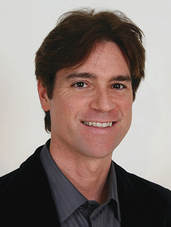 Pat Foran is a writer in Milwaukee, Wisconsin. His work has appeared in WhiskeyPaper, Gravel, Bending Genres, formercactus and elsewhere. Find him on Twitter at @pdforan 10/1/2018 0 Comments Domestic By Belinda Rimmer wakingphotolife: Flickr CC Domestic The problem with legs that won't go is they won't go. There was a time I could dance a night away with an exactness of step. I could kick a high-fandango, pirouette and split-jump across a room. But not any more. Life can knock you about. It's a bossy school teacher forcing you to do math when you'd rather write a sonnet, which, by the way, has counting in it. People, and by people I mean doctors, can't find a cure or a reason. Their quitting came slowly, after rounds of drug therapy and creams and hours in stuffy consulting rooms. I understand their frustration, I really do. I've been seeing a psychiatrist called Gerald. We're on first name terms. He's almost completely rotund, like a barrel, the sort you see in a pub pretending to be a table. Because I'm a difficult customer, I see him twice a week. The weeks have turned into years – three to be exact. He thinks the ocean of pain in my legs has nothing to do with my childhood – although there are Oedipal issues we address on a regular basis. This morning Gerald asked me, 'If your legs could carry you away, where would they take you?' I thought of Tenerife. But if you could choose one place in the world to visit, it shouldn't be Tenerife. I almost said Butlins. Gerald would have had a field day with Butlins, all those childhood memories. Instead, I shined the buttons on my coat. By the time my husband came to fetch me, I was sobbing. He doesn't usually come to fetch me. Someone, maybe the receptionist, must have phoned him. He placed a damp hand on my shoulder, gave me a squeeze – a threat. 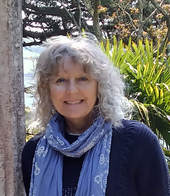 Belinda has worked as a psychiatric nurse, lecturer and creative arts practitioner. Her poems are published in magazines, on-line journals and anthologies. In 2017, she won the Poetry in Motion Competition to turn her poem into a film, since shown Internationally. In April, she supported Gill McEvoy at Cheltenham Poetry Festival, and has just learnt of her second place in the Ambit Poetry Competition. 10/1/2018 1 Comment Weaving By Neil Creighton wakingphotolife: Flickr CC
Weaving. The loom is quiet. Its treadles are still. The shuttles, once filled with sombre weft spools of darkly shining silk, are almost spent. Silently I add new shuttles, splice a brighter palate for an open French door, light, zephyr-lifted curtains, transparent, silver, morning light, rich complexity of sun sparkling on myriad green and the sense of birdsong. Yes, there must be birdsong. There must be joy. Yet let me unroll the cloth roller and look at you for one last time as you shuffle along your darkened corridor. It is well before dawn. Those visions of children which so haunt your sleep have woken you again. Your stoop is not just the weight of years but a heavier load of guilt bearing relentlessly down. Over and over again come those terrible words: “Whatever will people think of me?” Too late for that now. I re-roll the cloth. I have grieved long enough. Through the open door is blue sky. But I will weave through every scene that remains those little bits of glowing silk thread that depict the light of your eyes and the gentleness of your smile. I must also take one thread of dark sombre silk, your very special gift to me, your sadly powerful reminder of the tragedy and folly that can come when independence is surrendered, when strength of body wanes and the diminished spirit grows vulnerable and weak. I re-arrange the shuttles with spools of shining blues and green and splashes of gold and vermillion. I put my foot to the treadle. With a clatter the parts move and warp thread absorbs weft and the tapestry moves on. Let all your years of goodness outweigh those final spools of silent, secret surrender. See, for as long as I weave I will hold threads from your eyes and your smile. Now take your peace. Dream no more. Wring your hands no more. Rest quietly. Sleep easy. I let you go. Goodbye, dear one. Goodbye. Goodbye. Neil Creighton is an Australian poet whose work as a teacher of English and Drama has made him intensely aware of how opportunity is unequally proportioned. His work reflects strong interest in social justice, indigenous issues, the environment, people and relationships. His poetry has appeared in many places, both online and in hard-copy. He is a Contributing Editor at Verse-Virtual. wakingphotolife: Flickr CC DO NOT RESUSCITATE I wonder how you’d recognize yourself how you’d reenter the right body if we’d given different orders— let the machines bring you back from the light. Would you float down each corridor checking rooms, a ghost looking for the shell you once called home? You’ve never seen your face, not really, only a reflection in mirrors or water or glass. How do you know who you are? You’d pass by waiting rooms packed with anxious visitors praying. Skip the man you guess is about your age because grieving friends and family surround his empty frame. You’d search for the room with only one bed— a nurse unplugging equipment a body tagged at the toe a room absent of everyone who might have known you but couldn’t.  Marissa Glover teaches and writes in central Florida, where she spends most of her time sweating. Her poetry has been published at Four Ties Lit Review, The Furious Gazelle, Rose Quartz Journal, and Picaroon Poetry, among others—and is forthcoming from Collective Unrest and The Cabinet of Heed. Follow her on Twitter @_MarissaGlover_. 10/1/2018 0 Comments Poetry By Samuel J Fox10/1/2018 0 Comments Dead Bodies Float By Trina StolecDead Bodies Float I always heard bodies were ashen-white or pale gray. Her’s is almost colorless like wax. Brown hair licks polluted water, knuckles crack the wet barrier. Strange – the body floats. If she floats, how did she drown? Tiny waves undulate though she quit flailing ten minutes ago. Energy doesn’t disperse serenely. I watch the water rock her to sleep. Already she starts to sink. I pull the rope to the dock, wind it neatly on damp planks. It’s not my fault she sunk. The life preserver never made it close enough. I could have jumped in, but Daddy said it was sink or swim. I don’t swim well enough for two.  Trina and her black cat, Icabod, travel the Realm of The Muse conjuring poetry and allowing it to escape into Collective Cosmos. A party often ensues since the pair is always accompanied by at least one of Trina’s many personalities. On occasion, they pick up a musician and, under the moniker of Logic Alley, the Intrepid Duo take on the fight for Truth, Justice, and The American Way (non-revised edition) on stages across the area. At other times, Trina puts her acting training to work and pretends to be a normal person. |
AuthorWrite something about yourself. No need to be fancy, just an overview. Archives
April 2024
Categories |

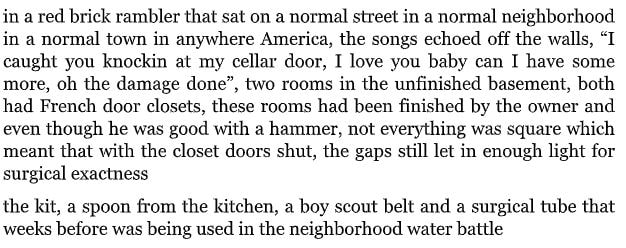
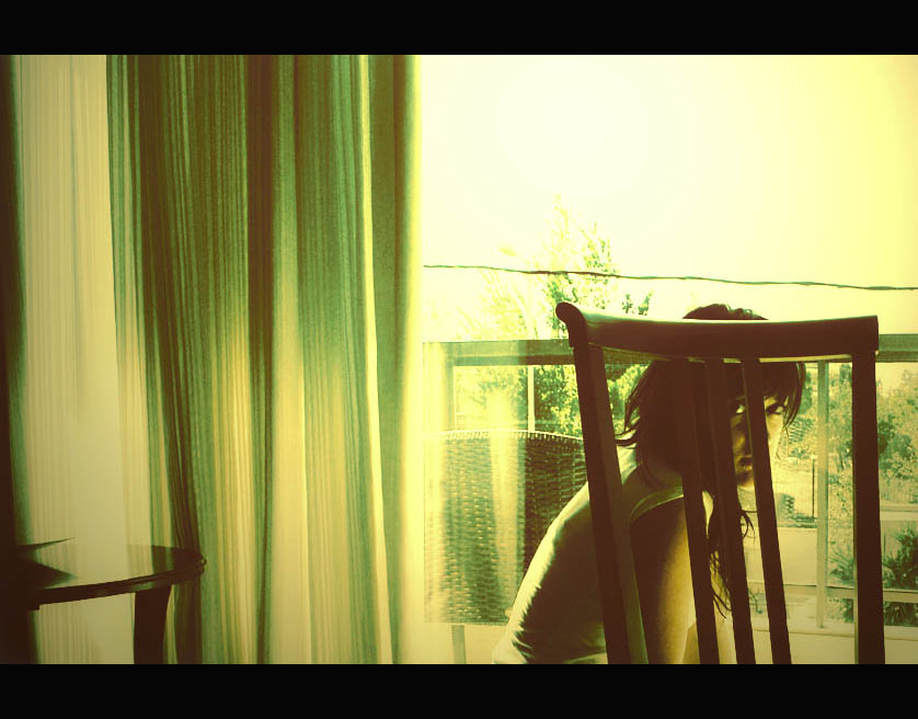
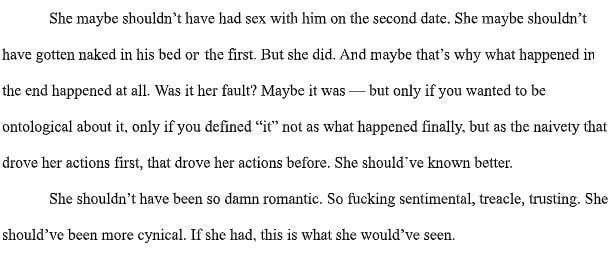
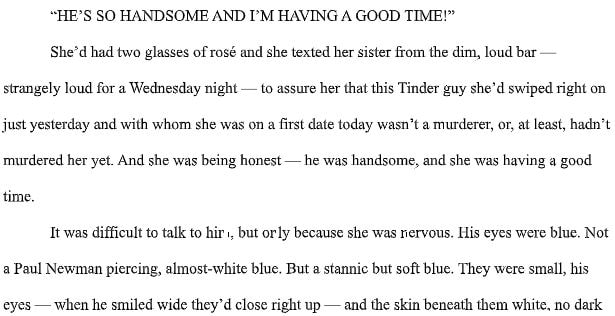

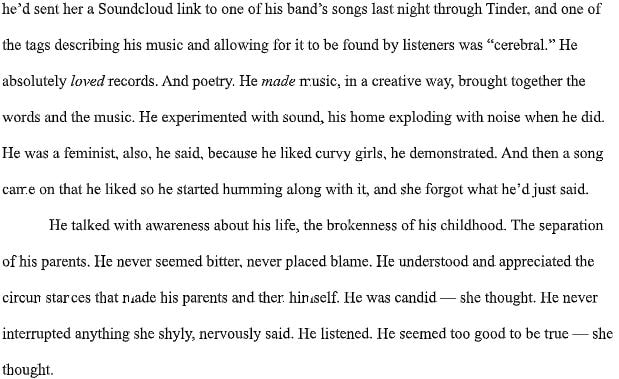
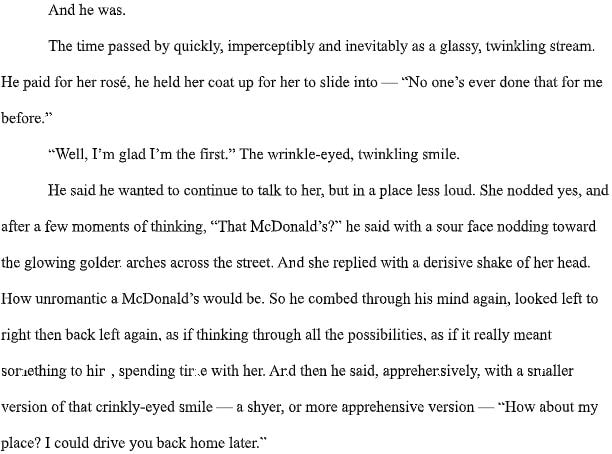
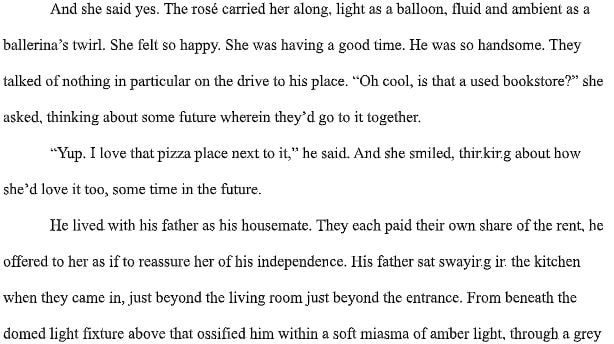
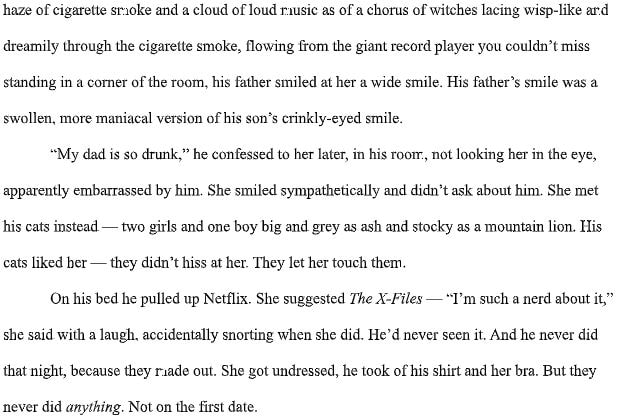
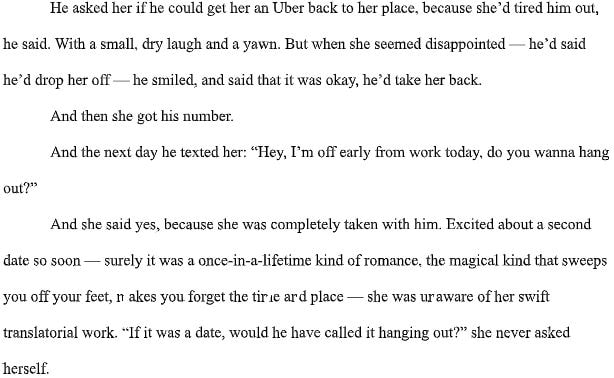
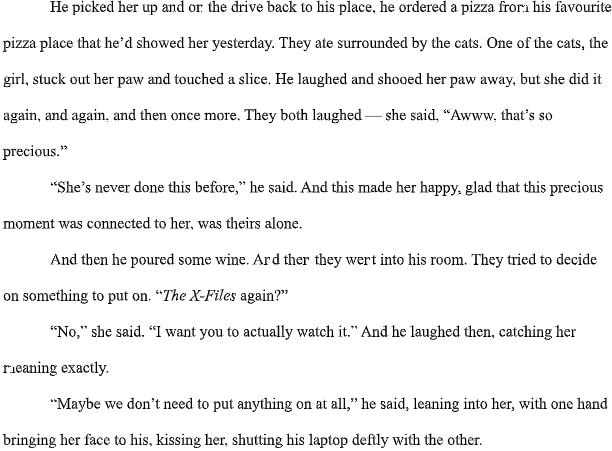
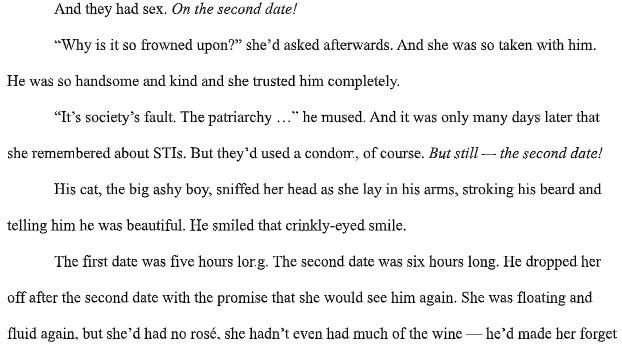
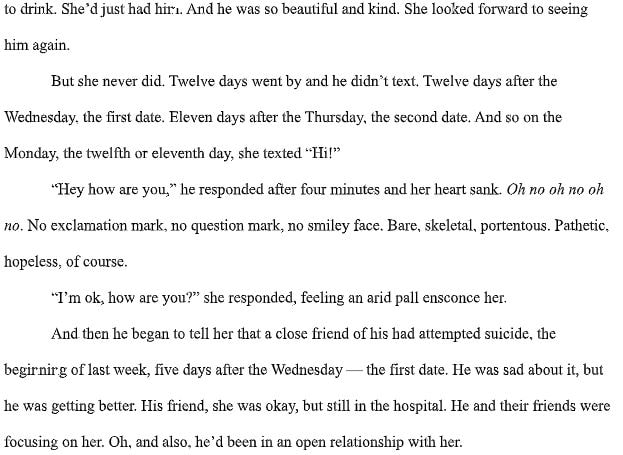
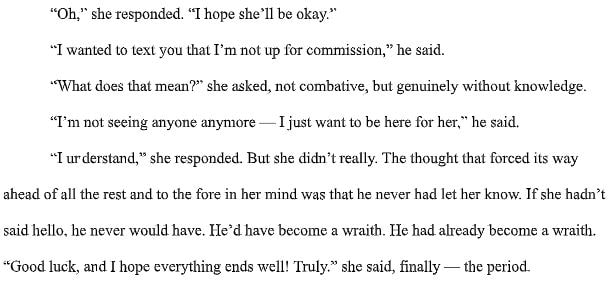
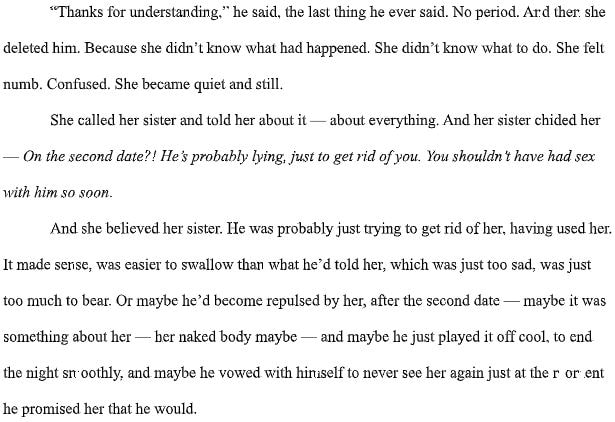
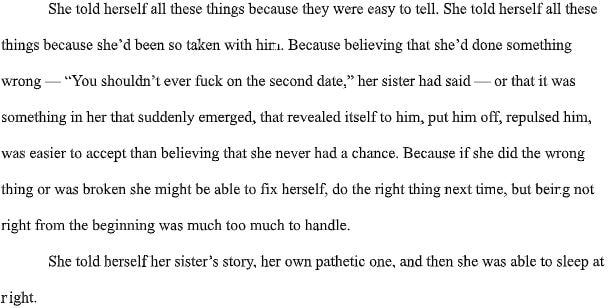
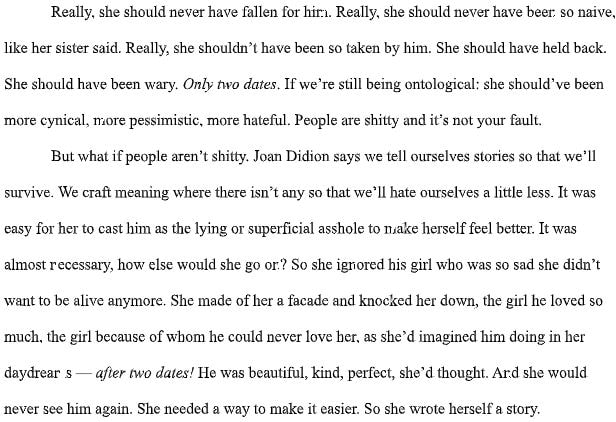
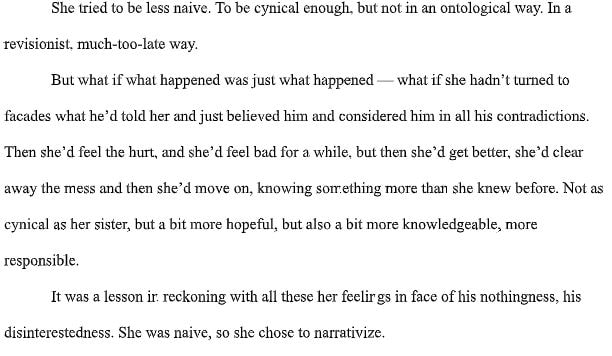
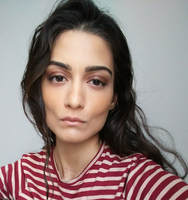
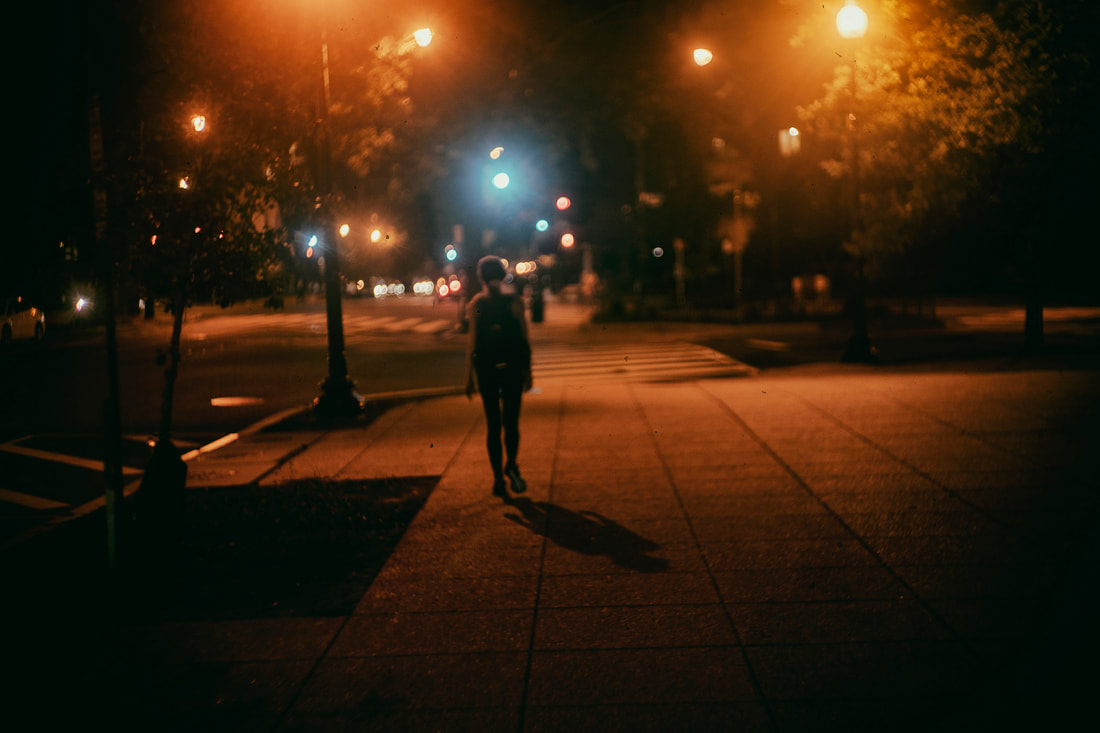
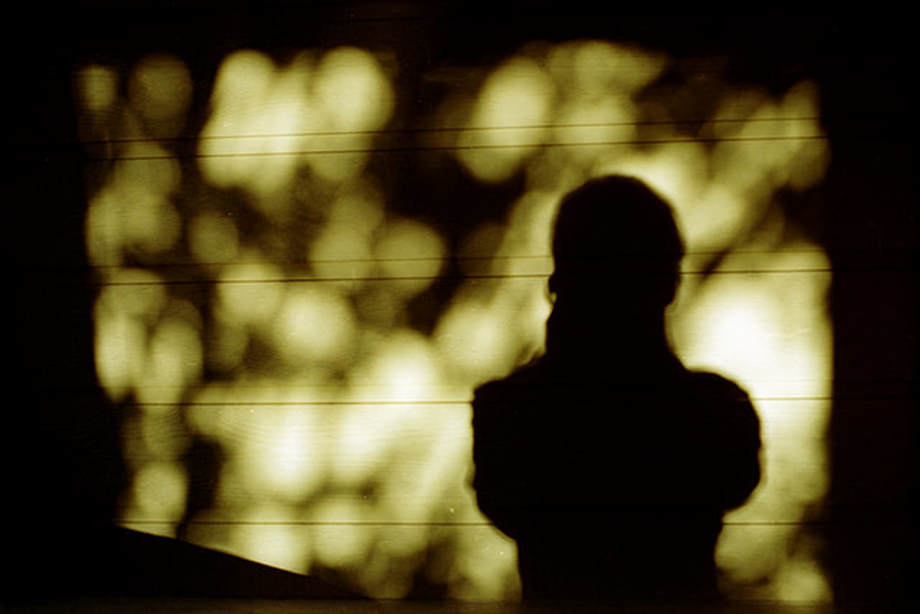
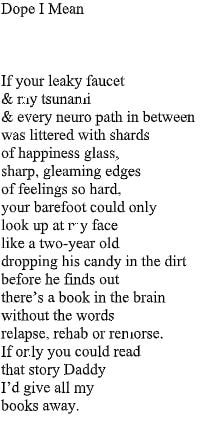
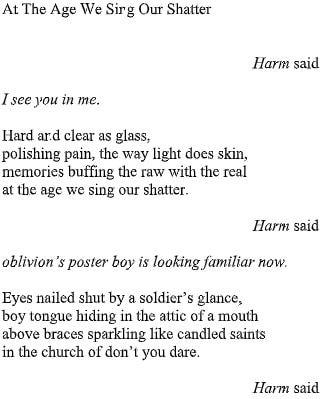
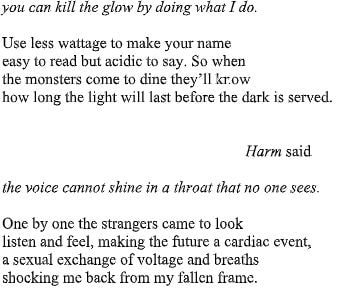
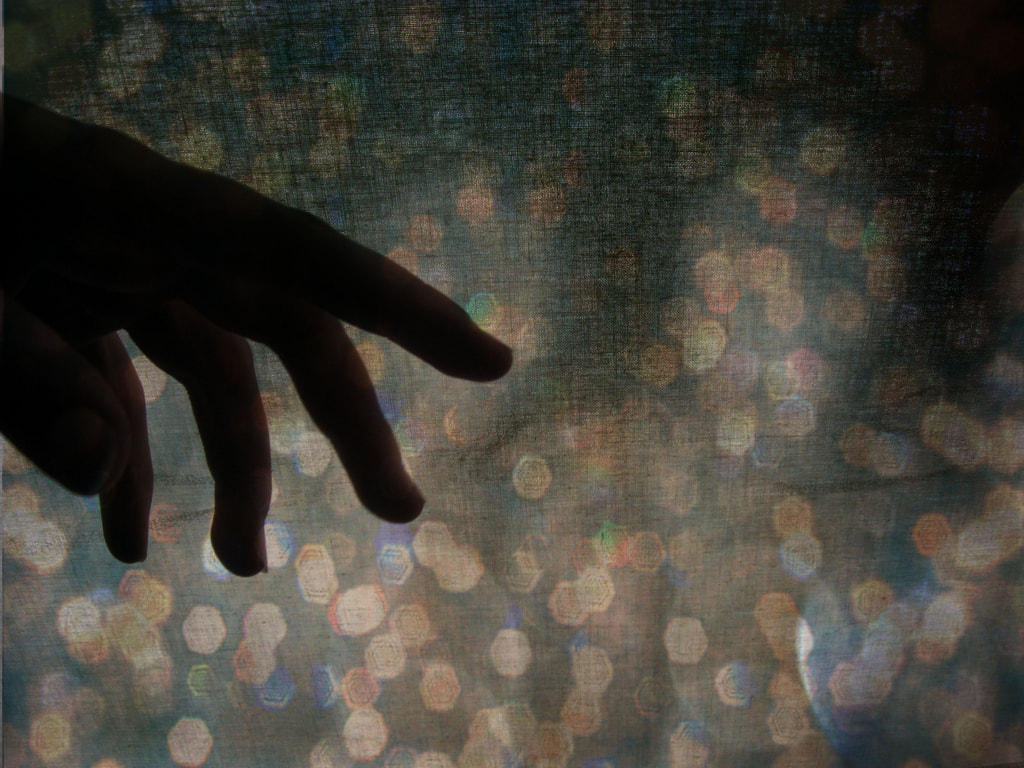

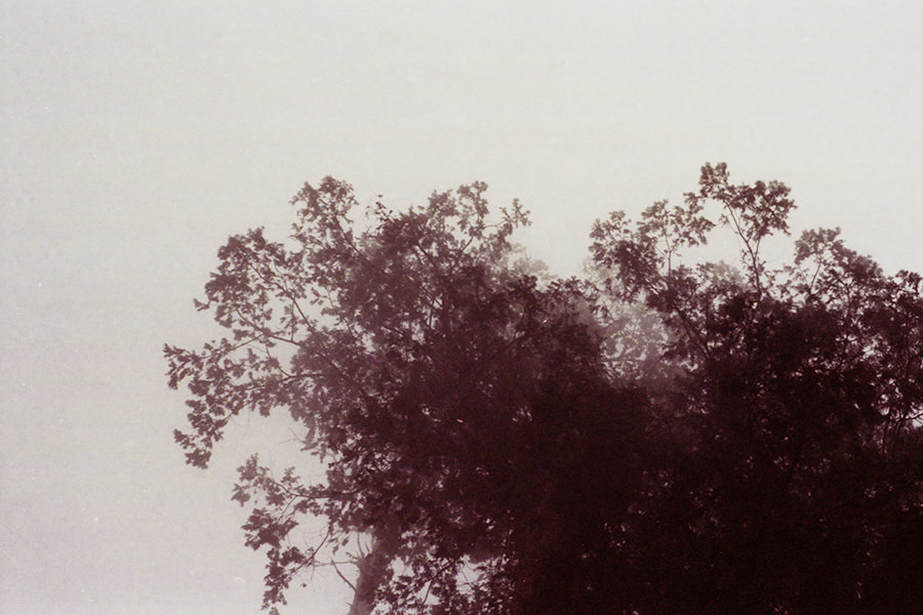
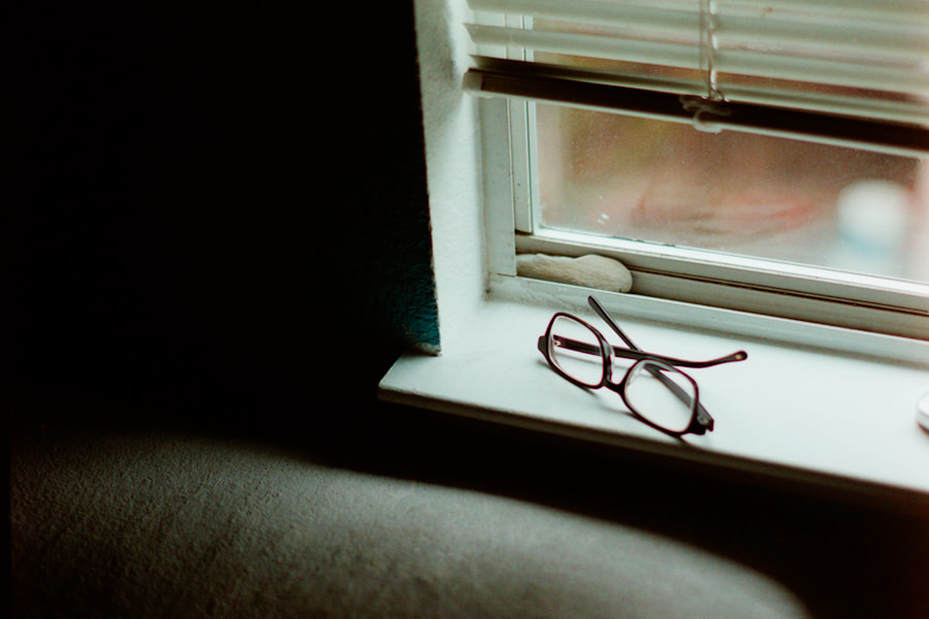
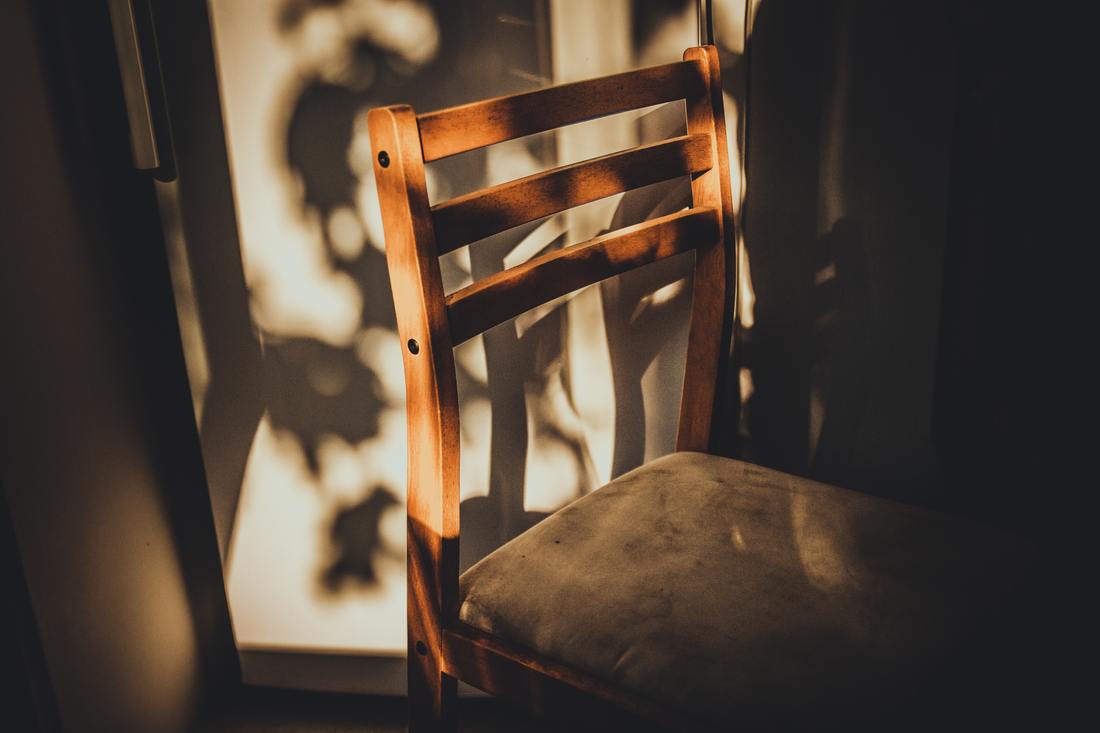
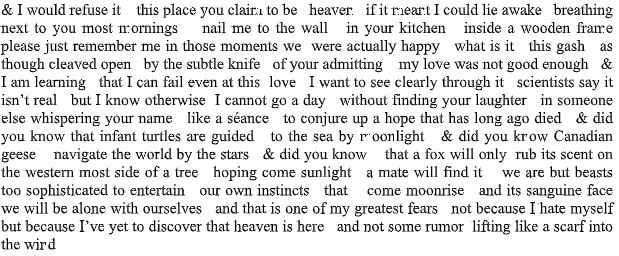
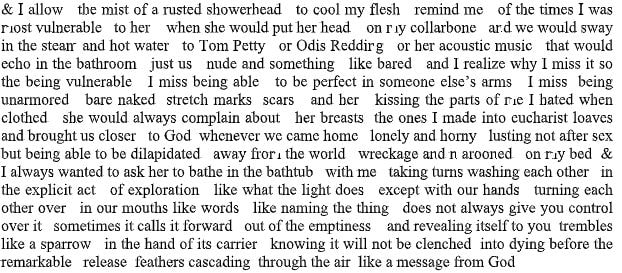
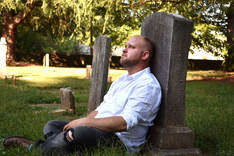

 RSS Feed
RSS Feed
